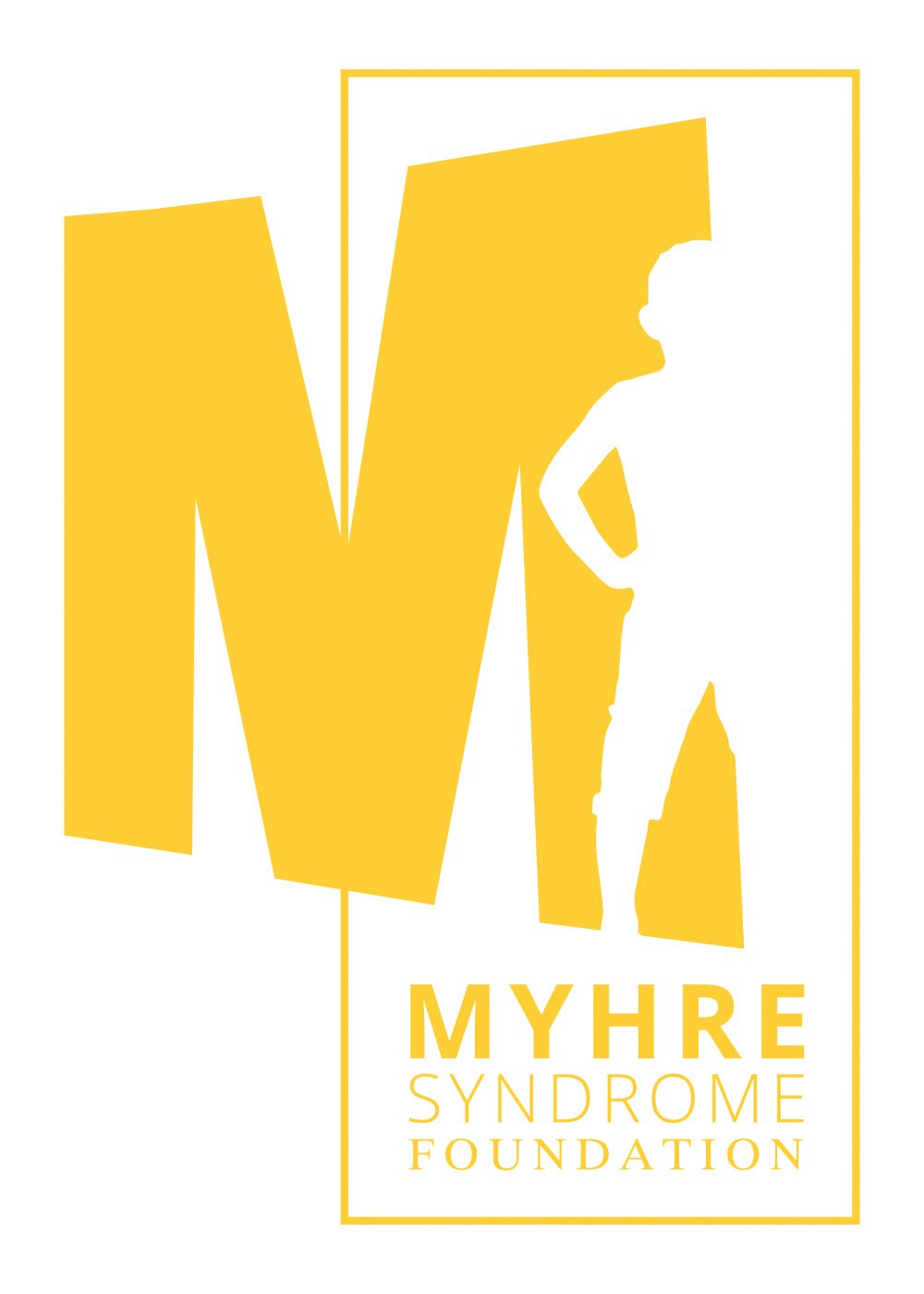Overview: Myhre Syndrome for Clinicians
Myhre syndrome is an ultra-rare, autosomal dominant disorder caused by gain-of-function mutations in the SMAD4 gene, typically involving codons 496 or 500. Since its first description in 1981, fewer than 300 cases have been confirmed worldwide, but true prevalence is likely underestimated. Myhre syndrome presents a distinctive, progressive, multisystem phenotype requiring coordinated, multidisciplinary care.
Read the latest recommendations for management and surveillance for each body system at GeneReviews.
Read the latest research paper from a study of 47 Myhre patients.
Key Clinical Features
Myhre syndrome is a multisystem, progressive connective tissue disorder that often results in significant complications. The most distinctive—and often severe—findings include:
Joint stiffness and limited mobility, which can progress over time
Restrictive lung and cardiovascular disease, including a tendency toward progressive and proliferative fibrosis
Thickening of the skin, usually arising spontaneously
Proliferative fibrosis and abnormal scarring (such as adhesions), which may occur after trauma, invasive medical procedures, or surgery
Effusions of the heart, airways, lungs, uterus, and peritoneum, which may progress to fibrosis
Other common clinical features:
Characteristic facial features: short palpebral fissures, deeply set eyes, maxillary underdevelopment, short philtrum, thin vermilion of the upper lip, narrow mouth, and prognathism
Developmental delay and cognitive disability (typically mild-to-moderate)
Neurobehavioral issues: autism spectrum disorder (ASD), attention-deficit/hyperactivity disorder (ADHD), and/or anxiety
Recurrent infections: although IgG and IgA deficiency are rare, patients may have frequent infections such as otitis media, sinusitis, mastoiditis, or croup
Progressive hearing loss
Growth impairment in early life, with most adolescents developing obesity
Eye findings: refractive errors, astigmatism, corectopia, and optic nerve anomalies
Gastrointestinal issues: gastroesophageal reflux disease (GERD), constipation, and encopresis are common. Less commonly, patients may develop GI tract stenosis, Hirschsprung disease, or metabolic dysfunction-associated liver disease.
Diagnosis & Management
Diagnosis is confirmed by clinical evaluation and molecular genetic testing for SMAD4. The phenotype evolves with age, often complicating early diagnosis. Management is supportive and multidisciplinary, emphasizing early intervention (physical and occupational therapy), ongoing surveillance (cardiac, respiratory, orthopedic, developmental), and individualized care planning, including specialized anesthesia protocols.
Two U.S. clinics specialize in Myhre syndrome care and research:
Massachusetts General Hospital (MGH) Myhre Syndrome Clinic – Boston, MA
Co-directed by Dr. Angela Lin and Dr. Mark Lindsay
National referral center offering comprehensive clinical assessment, genetic counseling, coordinated multispecialty care, and access to emerging research studies and natural history data.
The clinic collaborates closely with the Myhre Syndrome Foundation and serves as a primary research hub.
Stanford Myhre Syndrome Clinic – Stanford, CA
Led by Dr. Suha Bachir and a multidisciplinary team
Provides diagnostic evaluations, longitudinal care planning, access to clinical trials and research, and family support services.
Offers expertise in cardiovascular, respiratory, developmental, and genetic aspects of Myhre syndrome.
Medical Advisory Board
The Myhre Syndrome Foundation Medical Advisory Board brings together leading clinicians and researchers from the U.S., Europe, and beyond. This board offers expert guidance on clinical management, research priorities, and family resources. The board’s collective expertise ensures that evolving best practices and the latest research are rapidly shared with the clinical community.
Resources and Referrals
Clinicians are encouraged to refer patients with suspected or confirmed Myhre syndrome to these specialty centers and consult the Myhre Syndrome Foundation for the latest guidelines, natural history study enrollment, and patient/family support.
Myhre Syndrome Foundation Team
Armelle Pindon - Chief Scientific Officer - apindon@myhresyndrome.org
Kate Wears - Executive Director - kwears@myhresyndrome.org
